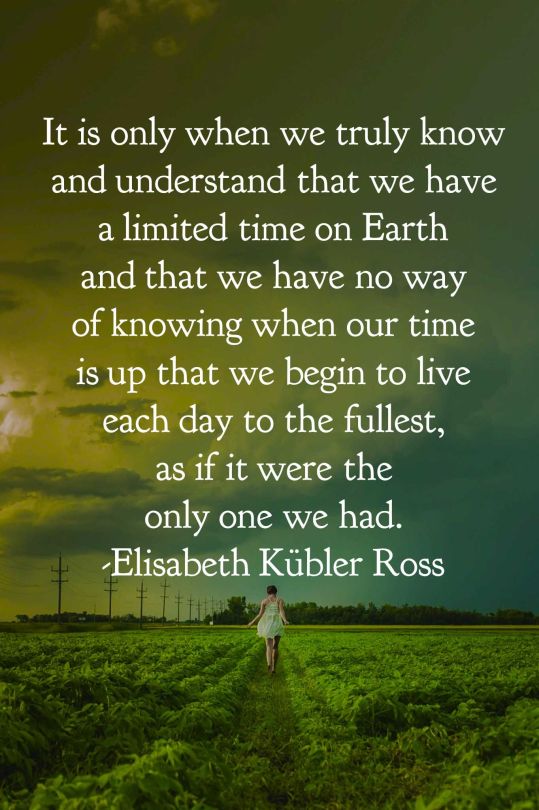#Kubler
Text
Our choice of the "history of things" is more than a euphemism to replace the bristling ugliness of "material culture." This term is used by anthropologists to distinguish ideas, or "mental culture," from artifacts. But the "history of things" is intended to reunite ideas and objects under the rubric of visual forms: the term includes both artifacts and works of art, both replicas and unique examples, both tools and expressions—in short all materials worked by human hands under the guidance of connected ideas developed in temporal sequence. From all these things a shape in time emerges. A visible portrait of the collective identity, whether tribe, class, or nation, comes into being. This self-image reflected in things is a guide and a point of reference to the group for the future, and it eventually becomes the portrait given to posterity.
George Kubler, The Shape of Time: Remarks on the History of Things
#quote#George Kubler#Kubler#history#time#history of things#culture#anthropology#art history#materialism#material culture#art#The Shape of Time
19 notes
·
View notes
Text
Jason Kubler
Jason Kubler is an international Australian tennis player. He exit in the Australian Open 2021 qualifying, he qualified in the semi-final of the Burnie Challenger but lost to Yannick Hanfmann in straight sets. Everyone can get here Jason Kubler's tennis career, wife, net worth, salary, height, family, and more

1 note
·
View note
Text
Nick Kyrgios vs Brandon Nakashima results, Alex De Minaur loses, Ajla Tomljanovic, Jason Kubler latest updates and video highlights
Nick Kyrgios vs Brandon Nakashima results, Alex De Minaur loses, Ajla Tomljanovic, Jason Kubler latest updates and video highlights
We’re going to a fifth set here on Centre Court and it’s all come undone so quickly for Nick Kyrgios.
After giving up the break, the Aussie plays a really careless game and basically gives away the fourth set 6-3 to the American.
Todd Woodbridge cannot believe what he’s seeing out there, calling it “really silly” from the Aussie.
“This is really silly from him here because that’s another…
View On WordPress
#Ajla#Alex#Brandon#highlights#Jason#Kubler#Kyrgios#latest#loses#Minaur#Nakashima#Nick#results#Tomljanovic#updates#video
1 note
·
View note
Quote
Love is really the only thing we can possess, keep with us, and take with us.
Elisabeth Kubler-Ross
#Elisabeth Kubler-Ross#motivation#quotes#poetry#literature#relationship quotes#writing#original#words#love#relationship#thoughts#lit#prose#spilled ink#inspiring quotes#life quotes#quoteoftheday#love quotes#poem#aesthetic
93 notes
·
View notes
Quote
Love is really the only thing we can possess, keep with us, and take with us.
Elisabeth Kubler-Ross
#Elisabeth Kubler-Ross#motivation#quotes#poetry#literature#relationship quotes#writing#original#words#love#relationship#thoughts#lit#prose#spilled ink#inspiring quotes#life quotes#quoteoftheday#love quotes#poem#aesthetic
299 notes
·
View notes
Quote
Love is really the only thing we can possess, keep with us, and take with us.
Elisabeth Kubler-Ross
#Elisabeth Kubler-Ross#motivation#quotes#poetry#literature#relationship quotes#writing#original#words#love#relationship#thoughts#lit#prose#spilled ink#inspiring quotes#life quotes#quoteoftheday#love quotes#poem#aesthetic
73 notes
·
View notes
Quote
Love is really the only thing we can possess, keep with us, and take with us.
Elisabeth Kubler-Ross
#Elisabeth Kubler-Ross#motivation#quotes#poetry#literature#relationship quotes#writing#original#words#love#relationship#thoughts#lit#prose#spilled ink#inspiring quotes#life quotes#quoteoftheday#love quotes#poem#aesthetic
88 notes
·
View notes
Quote
Love is really the only thing we can possess, keep with us, and take with us.
Elisabeth Kubler-Ross
#Elisabeth Kubler-Ross#motivation#quotes#poetry#literature#relationship quotes#writing#original#words#love#relationship#thoughts#lit#prose#spilled ink#inspiring quotes#life quotes#quoteoftheday#love quotes#poem#aesthetic
89 notes
·
View notes
Quote
Love is really the only thing we can possess, keep with us, and take with us.
Elisabeth Kubler-Ross
#Elisabeth Kubler-Ross#motivation#quotes#poetry#literature#relationship quotes#writing#original#words#love#relationship#thoughts#lit#prose#spilled ink#inspiring quotes#life quotes#quoteoftheday#love quotes#poem#aesthetic
124 notes
·
View notes
Text
i know this is very specific to me being a therapist but god I wish the stages of grief weren’t written into the album storyline this way 😭😭 it’s not her fault people think they’re sequential of course but just thinking about how things get perpetuated in media and the massive influence she has (“in my ___ era” is just… so normal now?) and I can already see the five stages becoming some sort of meme… miss swift I don’t need my job to be any harder
#also… TikTok is the bane of my existence because teenagers are already so delayed due to Covid#like working with 15 year olds makes me feel like I’m working with 12 year olds#and add TikTok to that…#especially TikTok mental health…#NO ONE GET MAD this is just so unfortunate#even kubler-ross regretted calling them stages#because the whole point is they arent linear#anyway. this is very specific I know#lmao it’s also worse because I hate the way she talks about therapy 🙃
42 notes
·
View notes
Quote
Love is really the only thing we can possess, keep with us, and take with us.
Elisabeth Kubler-Ross
#Elisabeth Kubler-Ross#motivation#quotes#poetry#literature#relationship quotes#writing#original#words#love#relationship#thoughts#lit#prose#spilled ink#inspiring quotes#life quotes#quoteoftheday#love quotes#poem#aesthetic
109 notes
·
View notes
Text
“En el interior de cada uno de nosotros hay una capacidad inimaginable para la bondad, para dar sin buscar recompensa, para escuchar sin hacer juicios, para amar sin condiciones”
Elisabeth Kübler-Ross

Fue una psiquiatra y escritora suizo-estadounidense, y una de las mayores expertas mundiales en la muerte, personas moribundas y cuidados paliativos.
Nació en Zúrich Suiza en julio de 1926, se licenció en medicina en la Universidad de Zurich en el año de 1958, se mudó a la ciudad de Nueva York en donde continuó con sus investigaciones. En 1963, se graduó como psiquiatra en la universidad de Colorado y a lo largo de su carrera recibió múltiples doctorados honoríficos.
Su interés por la muerte comenzó en su época de estudiante, cuando visitó algunos campos de exterminio nazi tras la guerra. Durante ese tiempo, se sorprendió al ver que las paredes de los barrancones estaban llenos de dibujos de mariposas, las cuales convirtió en un símbolo de renacimiento hacia un estado superior.
Empezó como residente con pacientes con enfermedades mentales y posteriormente con enfermos terminales.
Fue muy criticada en un inicio así que empezó a impartir seminarios en los que participaban enfermos terminales que hablaban en público acerca de su situación. Ya para 1968, estos seminarios se convirtieron en cursos acreditados, y hoy en dia, los estudios sobre la muerte y el morir forman parte de la formación de estudiantes de medicina en muchos países.
Su libro, “Sobre la muerte y los moribundos” publicado en 1969 expone su conocido método Kubler-Ross por primera vez, y en este y otros doce libros, sentó las bases de los modernos cuidados paliativos, cuyo objetivo es que el enfermo afronte la muerte con serenidad y hasta con alegría.
Elizabeth Kubler enfocó su investigación en cinco etapas de duelo, (la negación, la ira, la negociación, la depresión y finalmente la aceptación) y se utilizaron para afrontar situaciones difíciles como mecanismo de defensa ante una perdida, no solo la muerte, sino eventualidades tales como la pérdida de un empleo, un divorcio o la partida de un ser querido.
En 1975 Elizabeth publicó entrevistas y testimonios de personas que habían vivido experiencias cercanas a la muerte en donde la gente narraba la experiencia de la muerte como una maravillosa forma de reencuentro con personas amadas y su trabajo sobre el mas allá, supuso un alejamiento de colegas médicos que habían valorado su trabajo, ya que a pesar de esto, ella no tenía dudas acerca de la supervivencia del alma.
En 1995 Elizabeth sufrió varios ataques de apoplejía y quedó paralizada del lado izquierdo. En una entrevista de 2002 decía que estaba preparada para morir, falleciendo finalmente en agosto de 2004.
Fuentes: Wikipedia y Libro “La rueda de la vida”
#citas de reflexion#citas de la vida#citas de escritores#frases de reflexion#escritores#psicología#psicologos#tanatología#tanatologos#frases de escritores#notas de vida#elisabeth kubler ross#suiza#moribundos#muerte#morir#duelo
107 notes
·
View notes
Text

[ Brisbane International : Rafael Nadal ]
[ Doodle : Rafa got mini players in his pocket 2 ea ]
#rafael nadal#dominic thiem#jason kubler#brisbane international#tennis#i really like drawing mini tennis players#lol#thelions_ship#fanart#my art#art#artwork
37 notes
·
View notes
Text
"Learn to get in touch with the silence within yourself and know that everything in this life has a purpose. There are no mistakes, no coincidences. All events are blessings given to us to learn from.”
Elisabeth Kubler-Ross
36 notes
·
View notes
Quote
Love is really the only thing we can possess, keep with us, and take with us.
Elisabeth Kubler-Ross
#Elisabeth Kubler-Ross#motivation#quotes#poetry#literature#relationship quotes#writing#original#words#love#relationship#thoughts#lit#prose#spilled ink#inspiring quotes#life quotes#quoteoftheday#love quotes#poem#aesthetic
23 notes
·
View notes
